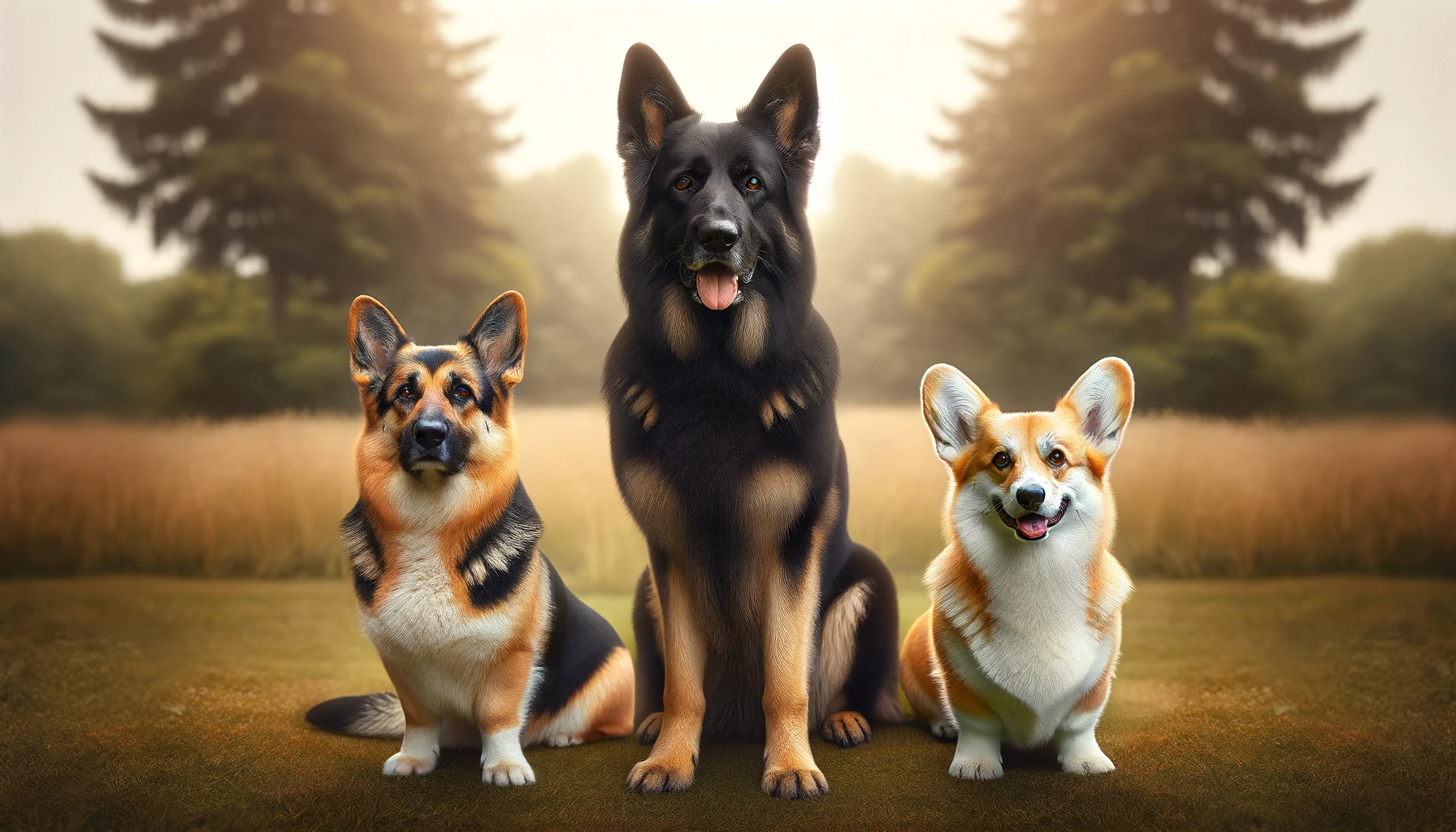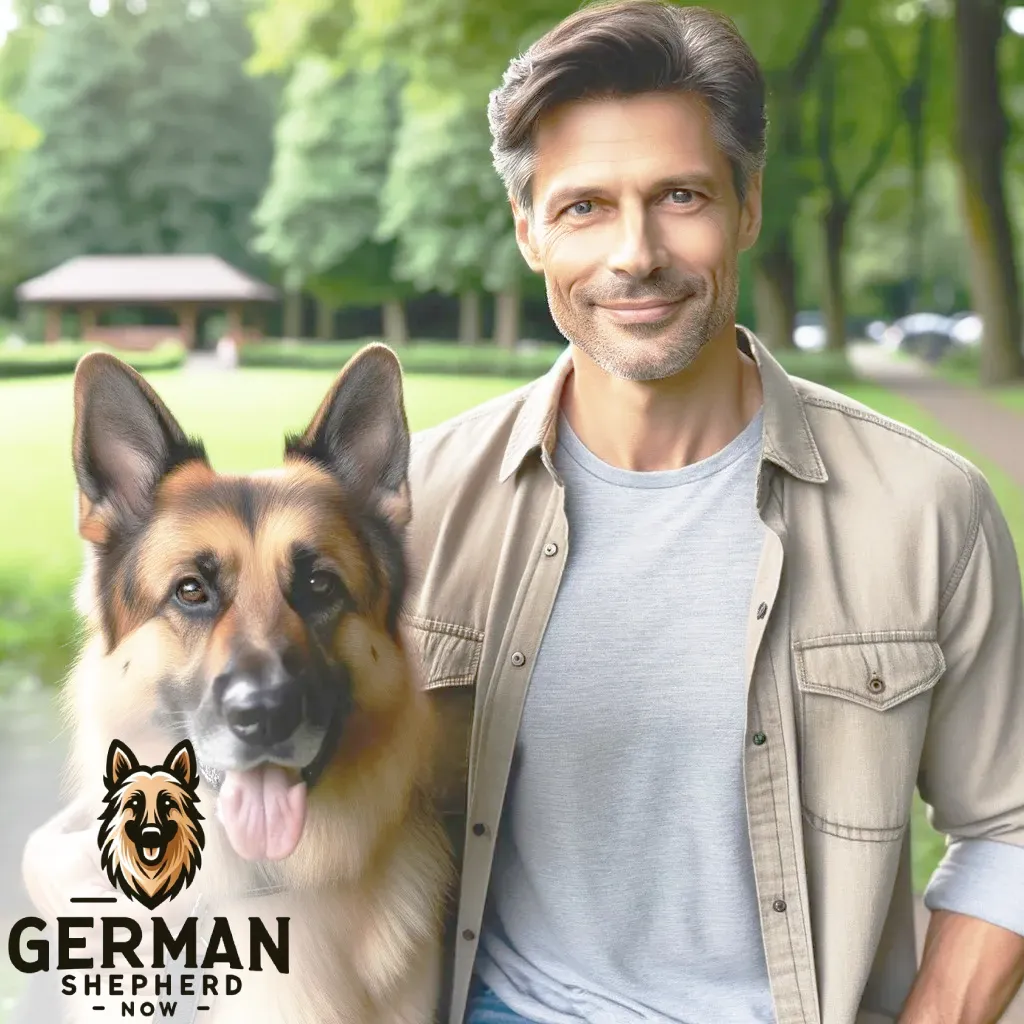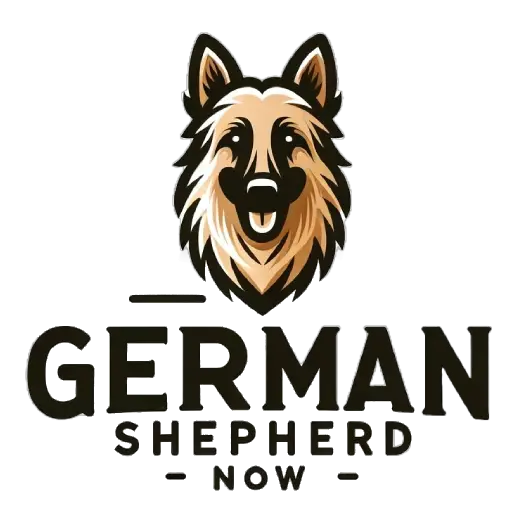Corgi German Shepherd Mix

The Corgi German Shepherd mix, also known as a “Corman Shepherd,” is a mixed breed dog from the Welsh Corgi and German Shepherd. This mix often creates a medium-sized dog that is smart and protective like a German Shepherd but also lively and friendly like a Corgi.
They usually look like a German Shepherd – in coat and color – but with the Corgi’s shorter legs and sturdy build.
These dogs need regular exercise and like to stay mentally active. They are loyal, loving, and good with families but might have a Corgi’s tendency to herd.
Facts About Corman Shepherd
The Corman Shepherd, a delightful mix of the Welsh Corgi and German Shepherd, presents a unique combination of traits from both breeds. These dogs are known for their distinctive appearance and personality traits, making them stand out as companion animals.
Below are well-explained facts about the Corman Shepherd, each shedding light on what makes this hybrid breed so special.
Origins and Breed History
The Corman Shepherd is a relatively new hybrid, born from the cross-breeding of the Welsh Corgi and the German Shepherd. This mix was likely first bred within the last few decades, aiming to combine the German Shepherd’s intelligence and protective nature with the Corgi’s smaller size and friendly disposition.
They don’t have a long history as a designer breed, but they inherit a rich lineage from both parent breeds, which have been around for centuries.
Physical Characteristics
A striking feature of the Corman Shepherd is their physical appearance, which blends aspects of both parent breeds. They usually inherit the robust, muscular build of the German Shepherd and the shorter stature and sturdy frame of the Corgi.
Their coat often reflects the colors and patterns of a German Shepherd, while their ears can be upright like a Shepherd’s or floppier like a Corgi’s. This unique combination makes them quite distinctive.
Size and Lifespan
Corman Shepherds are generally medium-sized dogs, thanks to the size difference between their parent breeds. They weigh between 20 to 70 pounds, with a life expectancy of around 12 to 15 years.
Their size and lifespan depend on their health, diet, exercise, and the dominant genes inherited from their parents.
Temperament and Personality
The temperament of a Corman Shepherd is a blend of both parents’ traits. These dogs are known for their intelligence and alertness from the German Shepherd side, combined with the Corgi’s friendliness and sociability.
They often display loyalty and a protective instinct, making them excellent family pets. Their personality can vary, with some leaning more towards the Corgi’s playful nature or the German Shepherd’s seriousness.
Training and Intelligence
Corman Shepherds are intelligent and trainable, inheriting their German Shepherd parent’s aptitude for learning and the Corgi’s eagerness to please. They respond well to positive reinforcement and consistent training.
Their intelligence means they can be somewhat stubborn, so patience and firmness are key in their training. Early socialization and obedience training are essential for this breed.
Exercise Requirements
This mixed breed requires regular exercise to stay healthy and happy. They are energetic dogs, inheriting the German Shepherd’s need for physical activity and the Corgi’s stamina.
A mix of physical exercises like walks, runs, and playtime, along with mental stimulation through interactive toys and training, is ideal for keeping them engaged and content.
Health and Care
The Corman Shepherd is generally healthy, but like all breeds, they can be prone to certain health issues. These can include hip dysplasia, a common problem in both parent breeds and other genetic conditions like degenerative myelopathy and eye problems.
Regular vet check-ups, a balanced diet, and adequate exercise can help maintain their health.
Coat and Grooming
The coat of a Corman Shepherd can vary, but they often have a double coat like their German Shepherd parent, requiring regular grooming. This includes frequent brushing to manage shedding, especially during seasonal changes.
They also need routine grooming practices like nail trimming, ear cleaning, and dental care to maintain hygiene.
Suitability for Families
Corman Shepherds are great family pets. They are known for their loyalty and protective nature, making them excellent companions and watchful guardians.
Their playful and affectionate demeanor also makes them suitable for homes with children. Supervising interactions with young children is important due to their herding instincts.
Unique Behavioral Traits
One exciting aspect of the Corman Shepherd is their potential to inherit the herding instinct from the Corgi side. This can manifest as nipping at heels or trying to herd people or animals, which can be managed with proper training.
They also may display the German Shepherd’s guarding instincts, making them alert and attentive to their surroundings.
Qualities of the Corman Shepherd
The Corman Shepherd, a hybrid blend of the Welsh Corgi and the German Shepherd, is a unique and captivating breed. Known for its distinctive traits and characteristics, this mixed breed inherits the best qualities from both parent breeds.
Here are a few key qualities defining the Corman Shepherd, each highlighting the breed’s versatility and appeal.
Adaptability and Versatility
The Corman Shepherd exhibits remarkable adaptability, inherited from both its parent breeds. These dogs are at home in a bustling family environment or as companions for a single owner.
Their size, a blend between the large German Shepherd and the smaller Corgi, makes them suitable for various living conditions, from apartments to houses with yards.
This adaptability extends to their ability to engage in various activities, from walks to more vigorous exercises, making them ideal for owners with diverse lifestyles.
Intelligence and Trainability
Corman Shepherds are smart and learn fast, thanks to the German Shepherds’ intelligence and the Corgis’ willingness to learn. They do well in obedience training and agility courses and can even be trained for service or therapy work.
They learn and like to make their owners happy, which makes training them enjoyable. But, because they are so smart, they need activities that make them think to keep them from getting bored. This makes them a great match for owners who like to teach their pets new things and play with them.
Loyal and Protective Nature
Corman Shepherds are known for their loyalty and protective instincts. They often form strong bonds with their family members, showing a deep sense of loyalty and companionship.
This loyalty is paired with a natural protective instinct, a trait of the German Shepherd, making them excellent watchdogs.
They are generally friendly but can be cautious around strangers, ensuring their family’s safety. Their protective nature is balanced with a friendly disposition, ensuring they don’t become aggressive or shy.
Energetic and Playful Disposition
Corman Shepherds, influenced by the Corgi’s lively spirit, are full of energy and love to stay active. They benefit from regular play and exercise, making them great partners for outdoor fun. Their playful and energetic nature is especially great for kids, as they can keep up with their high energy and excitement.
Because they are so energetic, they need to get enough exercise. This helps prevent them from getting restless or having behavior problems. They fit best with families or people who can keep them busy and engaged with plenty of activities.
Affectionate Companionship
One of the most endearing qualities of the Corman Shepherd is their affectionate nature. They are known to be warm and loving towards their family members, often seeking cuddles and companionship. This caring trait makes them excellent companions for those seeking a close bond with their pet.
They tend to be friendly with humans and other animals, especially when socialized from a young age. Their affectionate nature and loyalty make them more than pets; they become integral and beloved family members.
Challenges of the Corman Shepherd
The Corman Shepherd, a blend of the Welsh Corgi and German Shepherd, is a special and usually enjoyable pet, but it’s good to know that this breed might have some challenges. Every dog has its unique traits and possible downsides.
Here are a few of the not-so-great points about the Corman Shepherd, explained clearly to help you fully understand this breed.
Potential for Stubbornness
One of the challenges of owning a Corman Shepherd is their potential for stubbornness. This trait can be inherited from the Corgi, known for its strong-willed nature, and the German Shepherd, recognized for its assertiveness.
This stubborn streak can make training more challenging, especially for first-time dog owners. It requires patience, consistency, and a firm yet positive training approach.
This stubbornness is not a sign of a lack of intelligence; it often comes from their high intelligence and independent thinking, which, if not managed, can lead to selective listening and challenging behaviors.
High Energy Levels
The Corman Shepherd inherits high energy levels from both parent breeds, particularly the German Shepherd, known for its working dog stamina. This means they require a significant amount of daily exercise and mental stimulation.
They can become bored without adequate physical and mental outlets, leading to destructive behaviors such as chewing, digging, and excessive barking.
This breed is unsuited for a sedentary lifestyle or owners who cannot commit to an active daily routine. Prospective owners should be prepared for and committed to providing regular, vigorous exercise and interactive play sessions.
Herding Instinct
With its Corgi heritage, the Corman Shepherd might show a herding instinct. This can be tricky in homes with little kids or other pets. They might try to herd by nipping at heels or rounding up people and pets. If not controlled, this behavior could cause issues.
Training can help manage this trait, but it needs early and regular practice. Owners should stay alert and active in their training. This way, they can ensure this herding habit doesn’t become a problem at home.
Health Concerns
Corman Shepherds can inherit health problems from their parent breeds like any mixed breed. They might get hip dysplasia, often seen in German Shepherds and Corgis, and other inherited issues like degenerative myelopathy and eye problems.
Future owners should know these health risks could mean more vet visits and ongoing care.
Keeping up with regular vet check-ups, feeding them well, and making sure they get enough exercise can help lower some of these risks. But, owners need to be ready to handle these health challenges.
Shedding and Grooming
The Corman Shepherd usually gets its German Shepherd parent’s thick coat, which sheds a lot. So, they need regular brushing to keep fur under control in your home. If you have allergies or want a dog that’s easy to care for, this breed might not be ideal.
Also, they need more than brushing. Their nails should be trimmed, ears cleaned, and teeth cared for, which means more time and work to keep them healthy and happy.
Comparative Analysis: Corman Shepherd, German Shepherd, and Corgi

This table comprehensively compares three breeds: the Corman Shepherd (a mix of the Welsh Corgi and German Shepherd), the German Shepherd, and the Welsh Corgi.
By examining key aspects such as size, temperament, exercise needs, and grooming requirements, potential owners can better understand the differences and similarities between these breeds.
| Feature | Corman Shepherd | German Shepherd | Welsh Corgi |
| Size | Medium (20-70 lbs) | Large (50-90 lbs) | Small to Medium (up to 30 lbs) |
| Temperament | Intelligent, loyal, can be stubborn, protective, energetic | Highly intelligent, loyal, protective, confident | Friendly, energetic, bold, stubborn |
| Exercise Needs | High; needs regular physical and mental stimulation | Very high; requires ample exercise and mental challenges | Moderate; enjoys walks and play but less demanding than Shepherds |
| Grooming Requirements | Regular; prone to shedding, needs frequent brushing | High; heavy shedding, requires regular grooming | Moderate; sheds seasonally, requires regular brushing |
| Health Concerns | Potential for hip dysplasia, eye problems | Hip dysplasia, elbow dysplasia, bloat | Hip dysplasia, eye problems, obesity risks |
| Lifespan | 12-15 years | 7-10 years | 12-15 years |
| Training | Highly trainable but can be stubborn; requires patience and consistency | Highly trainable, excels in obedience and tasks | Trainable but can be independent-minded; responds to positive reinforcement. |
| Suitability for Families | Good with proper training; supervision needed with small children | Excellent with training and socialization; good with children | Good; can be nippy due to herding instinct, so supervision is advised |
| Social Needs | High; enjoys being with family, can be wary of strangers | High; loyal to family, can be aloof with strangers | Moderate; friendly but can be territorial |
| Activity Level | Energetic; requires a good amount of daily activity | Highly energetic; needs a lot of exercise and activity | Active but not as demanding as German Shepherds |
Conclusion: The Unique Corman Shepherd
The Corman Shepherd, a mix of the German Shepherd and Welsh Corgi, is a medium-sized dog that combines the intelligence and protectiveness of a German Shepherd with the Corgi’s energy and friendliness.
They often appear like a German Shepherd with shorter, sturdier legs like a Corgi. These dogs are active and need regular exercise and mental stimulation.
They’re known for being loyal and good with families, but they may also inherit the Corgi’s tendency to herd. This blend makes them a unique and adaptable companion for various households.
FAQs about the Corgi German Shepherd Mix
The Corgi German Shepherd mix is a unique and captivating crossbreed that combines the lively and affectionate nature of the Corgi with the intelligence and loyalty of the German Shepherd.
This hybrid, often known for its distinctive appearance and charming personality, has gained popularity among dog lovers. Below are some frequently asked questions to help you understand this interesting mix.
Q. What is a Corgi German Shepherd Mix?
The Corgi German Shepherd mix is a cross between a purebred Corgi and a purebred German Shepherd. This blend results in a dog that exhibits physical and behavioral traits from both breeds, often leading to an intelligent, active, and loyal companion.
Q. How big do Corgi German Shepherd Mixes get?
The size of a Corgi German Shepherd mix can vary, but they generally weigh between 30 and 70 pounds and stand about 12 to 15 inches tall at the shoulder. Their size balances the larger German Shepherd and the smaller Corgi.
Q. What is the temperament of a Corgi German Shepherd Mix?
This mix tends to inherit the best traits from both parent breeds. They are typically intelligent, energetic, and loyal. They are known to be good with families and can be very protective, a trait they get from the German Shepherd side.
Q. What are the exercise needs of this mix?
Corgi German Shepherd mixes are active dogs that require regular exercise to maintain their health and happiness. Daily walks, playtime, and mental stimulation are essential for this breed.
Q. How easy is it to train a Corgi German Shepherd Mix?
Corgi German Shepherd mixes are generally easy to train, given their intelligence and eagerness to please. They respond well to positive reinforcement techniques such as treats and praise.
Q. What are the grooming requirements?
Their coat can vary, but most Corgi German Shepherd mixes require regular brushing to manage shedding, especially during the change of seasons. Regular bathing, nail trimming, and ear cleaning are also important.
Q. Are there any common health issues?
Like all breeds, they can be prone to certain health issues. Common concerns include hip dysplasia, back problems due to their elongated body, and inherited conditions from Corgi and German Shepherd lines.
Q. How long do they typically live?
The average lifespan of a Corgi German Shepherd mix is around 12 to 15 years, depending on their health and living conditions.

I’m Martin, and I grew up in the super cool city of Seattle. You know, the place with all the incredible mountains and forests? Yeah, that’s my playground!
Ever since I was little, I’ve been all about nature. I used to wander around the woods with a notebook, doodling all the cool plants and animals I’d find.
